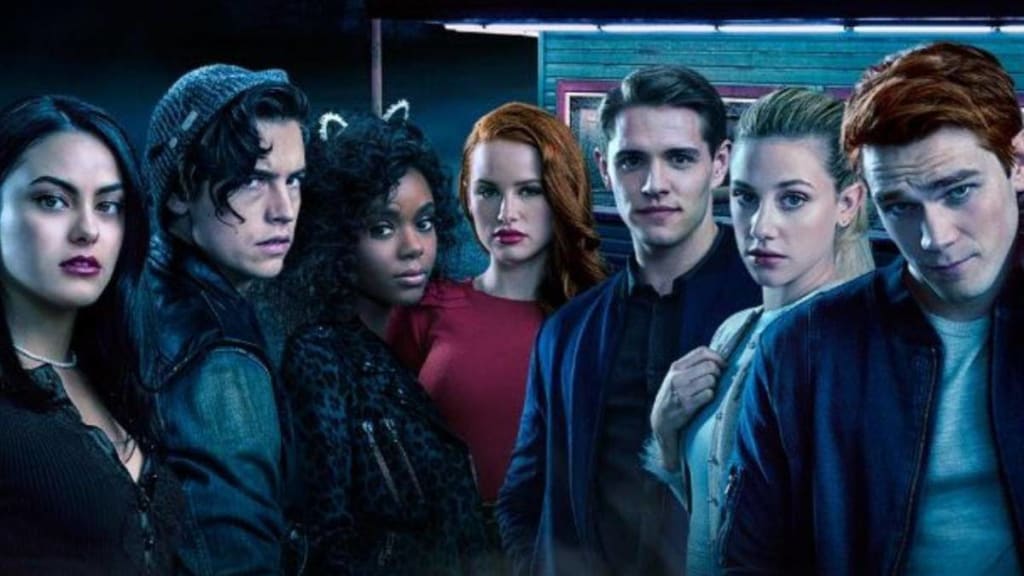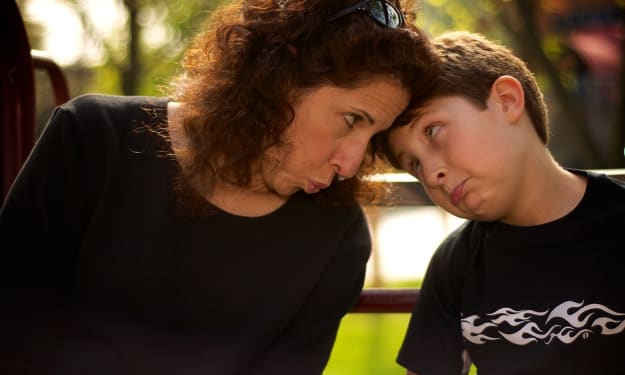
'Riverdale': A Coming of Age Story
When I first saw the CW trailer for the show, Riverdale I was amused and skeptical. The idea of all our favorite goody-two-shoe bathroom comic friends transformed into sexy soap stars was as bizarre as it was intriguing. I went from passively enjoying the drama, to anxiously awaiting each new episode every week. We have been exposed to Ms. Grundy’s forbidden and very illegal romance with Archie Andrews, the Southside Serpents' gang violence, Betty’s interesting and awkward sexualized dark-side, and so much more. Riverdale is a community whose justice system seems to depend on teenagers meddling in police investigations. This makes me wonder when a sexy Scooby Doo soap will be syndicated on the CW — I would probably watch it. Jughead, whose character is far more interesting and complex than I had expected, writes for the local school newspaper which has as much political relevance as CNN. It is through Jughead’s narratives we are exposed to what I believe is the main theme of Riverdale: teenagers coming of age. Let’s examine the four main characters to support my view.
As children, we are taught right from wrong. We are taught about morality, justice, and encouraged to be good people. These lessons are provided to us from our parents, and the surrounding community. Children are given narratives about the world and taught about meritocracy, justice, equality — taking turns and saying please and thank you. Riverdale is about taking those narratives and destroying them. Not only is this reality shattered, it is done so by the very people who constructed it: parents, teachers, and various members of the community (merchants, police officers, business owners). Betty is my favorite example of this.
Betty
She may be the goodiest of the goody-two-shoes. A high achiever with an even higher moral standard, a commitment to modesty, and a hunger for truth. Betty is the naïve child suddenly faced with the complexities of the dog-eat-dog world. Her transformation is internal, and secretive. It is clear she struggles with shame related to her changing identity — inside she is intrigued with the immoral and curious about the darker side of life, and she struggles to find a balance as she explores her identity. She explores her sexuality through camming and a sexier alternative, “Dark Betty” identity. She cannot escape the notion she may not be a “good” person, and this conflicts with everything she has been taught. But what is a “good” person anyway?
Jughead
He is a right-fighter. He sets out to expose the immorality and general shady conspiracy that is the residents and town of Riverdale. What is ironic about his character is that his father is in high-standing with a gang, which is essentially organized crime. My theory is he attempts to expose wrong-doers in his community (The Lodges, The Black-hood, The Blossoms) to subconsciously distract himself from the crimes and immorality right under his own nose: his father, his gang affiliation, and the crimes committed by all these individuals and himself. Not to mention, he is totally judgmental and could easily be renamed, “Judgehead.” [Spoiler Alert] Despite the fact he helped Betty and her family hide a murder victim’s body, he still can’t help fixating on the sins of others. You are an accessory to murder! He wants to make the world more just through his journalism, but cannot bring himself to do so when it comes to people he cares about. He sees those he cares about as justified in their reasonings for their actions, such as the Southside Serpents.
Archie
Oh my goodness, Archie. While Betty is preoccupied with herself and her emerging identity, and Jughead is focused on exposing the community wrongdoers, Archie is totally invested in his heart. I could write an entire essay on Archie’s issues with attachment, likely stemming from his parent’s divorce and his disorganized attachment to his mother. Archie grew up similarly to Betty, they live next door to each other and have a shared history. In addition, Archie has a history of loss and fear of loss — i.e. his parent’s divorce, and his father’s near-death incident. As result, he is committed to Veronica and her family, almost desperately. Archie is one of the only characters to dismiss the wrongdoings of The Lodges. He does this in exchange for connection, but it comes at a price as his best friends, Jughead and Betty are set on their exposé prerogative. The love he seeks is not just romantic, it's familial, and of course he benefits from the protection of the super wealthy Lodge family. Archie turns a blind eye to the witnessed murders, the obvious contradictions, and the shady money deals because it means having love. He will even risk is own life and turn his back on family.
Veronica
In the first season, Veronica is the typical new hot girl in town. We all knew when we seen the initial trailer for Riverdale that Betty and Veronica would kiss, and the first episode did not disappoint. Veronica is arguably the most interesting main character because she is full of secrets. She is well aware that the childhood innocence life narrative is a farce, but she balances this well. She is committed to being a good person any way she can. She dislikes suffering, she is for justice, and she does not want to disappoint her friends. However, she is also aware of and involved in her parents' less-than-legal business ventures. She plays the “I don’t have any clue” card enough, but we can tell by the clever directing of this show that she knows more than she lets on. She is acquainted with the cruel and messy adult world more than her peers, and this is why her character is often so calm. She is faced with the reality of having Archie, immersed in her dangerous black market world. She plays it cool because she is the only teen who gets life is messy and complex, and there is often no “right and wrong” decision. It is just a concept, a mere option.
Conclusion
Riverdale is a show about sheltered youth being exposed to real world problems. Recognizing that those who preached justice and morality in our young lives are often offenders of the same code, is what I propose is the theme of the show. The teens are battling with: Do I resist this? Or do I accept this? These are young people having to balance their emerging identity with the reality of the world around them. Do they criticize themselves and the world around them for not meeting this childhood standard of morality? If so, what kind of person does that make them? How does that affect their relationships? Do they only criticize the violations of the world around them and deny their own? If so, who do they then become? Do they embrace the world around them in exchange for belonging? If so, what does that say about who they are? Or do they play neutral and walk among both worlds, never truly fitting into either? I believe Riverdale is a beautiful 2018 metaphor for the world we are leaving for our young people. Disregard for the working class, greed, corrupted politics, half-assed police services, this is the world our young people are facing, and the world they will become adults in. All the creators of Riverdale have done is made it sexy.
About the Creator
Aly Moon
A Canadian living abroad. As a social worker, I am very interested in people, psychology, and different perspectives. I share some of mine: be it political, or just observation, I am here to share my insights and opinions!






Comments
There are no comments for this story
Be the first to respond and start the conversation.